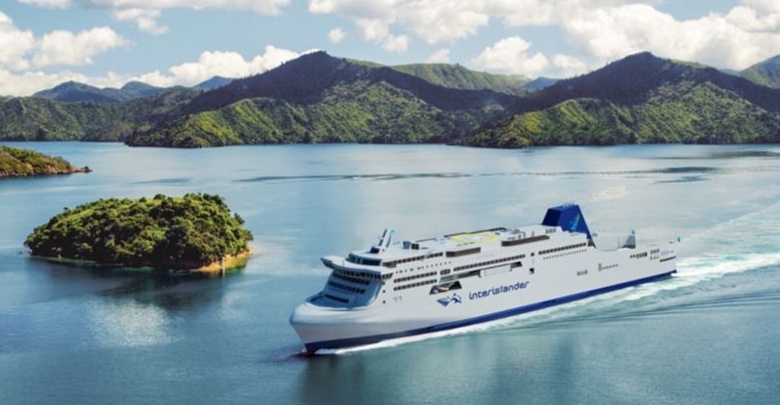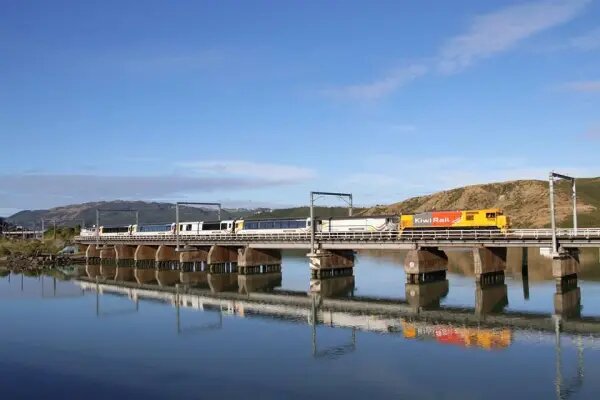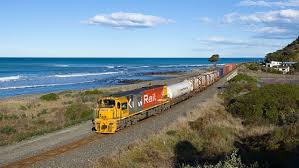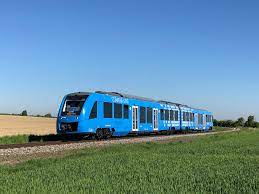Press Release: The latest episode in the tragicomedy drama of the Cook Strait ferries is a clear illustration of how past decisions affect present ones. Mahatma Gandhi once said, “The potential for tomorrow depends on what we do today”. In short the Aratere incident is due to a decision around 2015 not to buy replacement rail capable ferries. Now we don’t have one, for a while at least.
This leads directly to the government’s decision not to buy rail capable ferries. Ex Railway Minister Richard Prebble said in December 2023, “The decision to cancel the new rail ferries is a decision to cancel having a railway”.
National coordinator of The Rail Advocacy Collective (TRAC), Niall Robertson says, “The Aratere is the New Zealand Main Trunk Railway; Wellington to Picton section. It does not have the capacity to haul the amount of rail freight that is required on this route currently with a lot fewer trains going to Christchurch from Picton compared to the days of three rail capable ferries”.
Treasury advised the government recently that using non-rail capable ferries, “would not make a material difference to the amount of freight that would move from rail to road ….. .and almost all of it could be done by road bridging”. Robertson says that this is bad advice and patently untrue, and points out that this goes against the known principle that double handling increases time and cost. Don Braid, CEO of Mainfreight said that the company, “…is “unsettled” by the “fiasco” around the future of the Cook Strait rail ferry services and rail service south of the Waikato” and, “”The loss of rail services between the North and South Islands would result in Mainfreight adding 5700 more truck and trailer journeys a year”.
Robertson says that TRAC fears that the failure to procure rail ferries and the government GPS statement appears to be anti-rail. Robertson adds that the last thing we need is more trucks on the roads, and he says,”....that’s costing the taxpayer $4billion just to fix potholes currently”.
Robertson says that it is time that some efficient, safe and reliable rail capable ferries were bought for the Cook Strait. Chair of TRAC, Guy Wellwood questions the wisdom of lowering the role of rail in the New Zealand economy. He says, “This doesn’t make sense when we are a distant trading partner always battling the tyranny of distance. We are now becoming a uni-modal, road dependent, high carbon transport country, ignoring our Paris commitments regarding CO2 emissions and we risk upsetting many of our trading partners”
We have been led to believe that this all about cost, but Craig Harrison the National Secretary of the Maritime Union said this, “….Contrary to claims the upgrade will cost too much, analysis from the Council of Trade Unions shows over the lifetime of the assets, the cost of upgrading the Interislander ferries is only about $11 per New Zealander a year. By contrast, the landlord tax cuts will cost Kiwis $139 each year”.
Robertson adds, “Despite the government standing firm on the current proposal to buy non-rail, second hand vessels, there are only 22 in the world and none are for sale and, none will come into service with modern internationally recognised safety standards”.
Robertson says, “Ït is time to rid ourselves of “Corrolla” options and to start considering the proper built for purpose vessels that we need”. Wellwood adds, “Maybe the ferries were too big, and maybe Kaiwharawhara wasn’t the best location, but there are still options for these ferries , but the government just isn’t looking at options for a proper built for purpose fleet”, and Robertson adds that this is treating the travelling New Zealand public, rail dependent industry and visiting tourists with not a lot of respect.
Press release dated 23 June 2024. Authorized by Guy Wellwood Chair, The Railway Advocacy Collective (TRAC)



